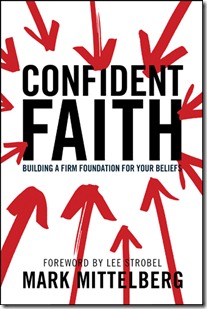Archive for June, 2013
Adaptive Challenges
Leaders in the church today are facing a new kind of problem. Previously, the majority of the challenges faced by the church, and by church leaders, were identifiable, comprehensible, and often fully solvable. Some experts now refer to those types of challenges as “technical problems.”
In contrast to technical problems, “adaptive challenges” appear to be arising in our churches with increasing frequency. Adaptive challenges are characterized by being complex, difficult to identify, and multi-faceted. To resolve adaptive challenges people and communities must change at fundamental levels. Experimentation is required–with no guarantee of finding solutions. The church is facing these sorts of problems more and more.
That means when we teach things like “How to share the gospel” we run a serious risk of doing more harm than good. If we believe there is a formula for conversion that means we believe that non-Christianity is a technical problem. When we talk about the “right way” to do a worship service, or to lead a praise band, or to have a dating relationship; not just naming some pitfalls, but acting like there is a correct path to follow… We are making stronger claims than we probably realize.
There may have been a time a generation or two ago when most of the responsibility of a church leader, was reasonably boilerplate. Give the sermon, collect the offering, close in prayer. I doubt it, but It’s possible. But I just don’t think we can get away with it anymore. Instead I believe that we as a church need to address with flexibility and humility the amorphous shifting problems that lie ahead.
Postmodern Apologetics
I want to steal one other idea from the book Confident Faith which I wrote about last time and use it as a springboard into talking about something I’ve wanted to broach for a long while, but haven’t known how.
In the book, Mark talks about “6 paths to faith” which is a pop level way to talk about epistemology. Ways of knowing.
 He talks about a Relativistic Path: Truth is whatever works for you.
He talks about a Relativistic Path: Truth is whatever works for you.
A Traditional Path: Truth is What you’ve always been taught.
An Authoritarian Path: Truth what you are told you must believe.
The Intuitive Path: Truth is what you feel in your heart.
The Mystic Path: Truth is what you think god told you.
And the Evidential Path: Truth is what the logic and evidence point to.
I thought it was very elegant, ant it covers its bases pretty well. I probably would have made experience it’s own thing, and I like his way better, splitting into a couple.But after laying it out so nicely, Mittleburg does something that puzzles me: He proceeds to discredit each of these paths as unreliable in favor of the last one.
Why Mark?
This attitude is typical of all apologists I have met, often in less obvious ways, and it’s bewildering. Somewhere along the line we have agreed that the way to engage a postmodern culture that doesn’t care so much about logic and reason as what is good and beautiful, is the prove them wrong, turn them into athiest modernists, and then evangelize them.
Why not instead learn to defend the faith, postmodernly? Jesus was not a modernist! Nonetheless we learned (a few hundred years after we might have), that we could defend the faith using science, and logic, and rational inquiry. Why now that the seekers are asking for testimony and authority are we throwing up our hands? Why should we limit ourselves to such a small slice of the epistomological pie for a god that is larger than the slice and larger than the pie itself.
If Truth is what works for you then I am going to show you why living for Jesus is the best and most productive way to life, and introduce you to Christian Pragmatism
If there is Truth in tradition, then I’ll invite you into a tradition greater than your own, at the cradle of monotheism, Where the great men and women of the Judeo Christian tradition worship the one who is greater because he came before.
If Truth is in authority I’ll quote to you from Einstein and Newton, From Shakespeare and Bach, From the Mohammed and Isaiah about the man Jesus Christ, who he is and what he means.
 If Truth is something you feel then feel this and tell me it hasn’t been what your heart has longed for all along: There exists a mighty being, a creator of the universe, an everlasting father of all mankind, and he loves you. He knows your name, and he wants more than anything to be your friend and never leave you, not ever, in all of eternity.
If Truth is something you feel then feel this and tell me it hasn’t been what your heart has longed for all along: There exists a mighty being, a creator of the universe, an everlasting father of all mankind, and he loves you. He knows your name, and he wants more than anything to be your friend and never leave you, not ever, in all of eternity.
And if Truth is what God told you, then I’ll pray with you to a God that I know answers prayers and promises always to give good gifts to those that ask, trusting his goodness and faithfulness to answer his children over my capacity to show him to you without his help.
If you still want me to do If P then Q. Yeah, I can do that also. Because Jesus is all these things and more. He is Truth incarnate, the word made flesh. And we couldn’t hide him if we wanted to.
Confident Faith
 I love apologetics, so when I happened into a Christian bookstore today I was happy to see a new apologetics book on the bestseller list.
I love apologetics, so when I happened into a Christian bookstore today I was happy to see a new apologetics book on the bestseller list.
I was even more happy to see it came from Mark Mittelberg, an author I’m very familiar with. he went to my church and I was his son’s small group leader.
It seems to me he finally put to paper an idea he has been talking about for a good long time. It’s a pretty seminal idea, and one I’m a pretty big fan of. I’m not however a fan of couching good ideas in 150 pages of kinda okay stuff, and then selling the lot for 25 bucks rather than simply sharing the goods. So I’m going to share with you Mark’s Big Idea here on the blog today. If you want to learn more, click the cover and it’ll take you to his amazon.
Mark presents a rational faith, one that is well evidenced as being like the picture at left (or the cover of his new book) Arrows represent arguments. Some are bigger, some are smaller some are closer, some are further away. So maybe that big straight one at the top is evidence for the resurrection, then off to the sides you have some big classical arguments, combined with some anecdotal evidence. They all point in the same direction so we know we have a good, rational position.
 For many of us though, the Christian life doesn’t feel that way. Maybe we used to think it looked like the picture above, but lately it feels like the picture at right. We don’t have all the answers, everything it not neat and clean. There are some evidences or arguments for faith, but there are big questions in the way that could mean anything, and worse yet, some evidence we have seen seems to point in totally different directions. Maybe that one at the bottom there is evidence for evolution and the “?” above it is the age of the earth. In those cases, the point Mittelburg would make, is that you are still in a rational position. to stay where you had been. You need to research more, and not less, because the evidence should all point to something, but invalidating a few of the reasons for a belief is not the same as undermining the whole thing. So many people seem to have a crisis of faith at this point and it’s just not justified.
For many of us though, the Christian life doesn’t feel that way. Maybe we used to think it looked like the picture above, but lately it feels like the picture at right. We don’t have all the answers, everything it not neat and clean. There are some evidences or arguments for faith, but there are big questions in the way that could mean anything, and worse yet, some evidence we have seen seems to point in totally different directions. Maybe that one at the bottom there is evidence for evolution and the “?” above it is the age of the earth. In those cases, the point Mittelburg would make, is that you are still in a rational position. to stay where you had been. You need to research more, and not less, because the evidence should all point to something, but invalidating a few of the reasons for a belief is not the same as undermining the whole thing. So many people seem to have a crisis of faith at this point and it’s just not justified.
The only time it’s rational to leave Christianity and join something else, Or leave something else and join Christianity for that matter. Is when your belief and evidence system starts to look like below. Everything that used to seem to point to one thing is actually pointing to a different thing, new evidence arises pointing there, and what is left to justify your old belief is dubious at best, with a lot of questions left unanswered.
Where are your arrows pointing today?

